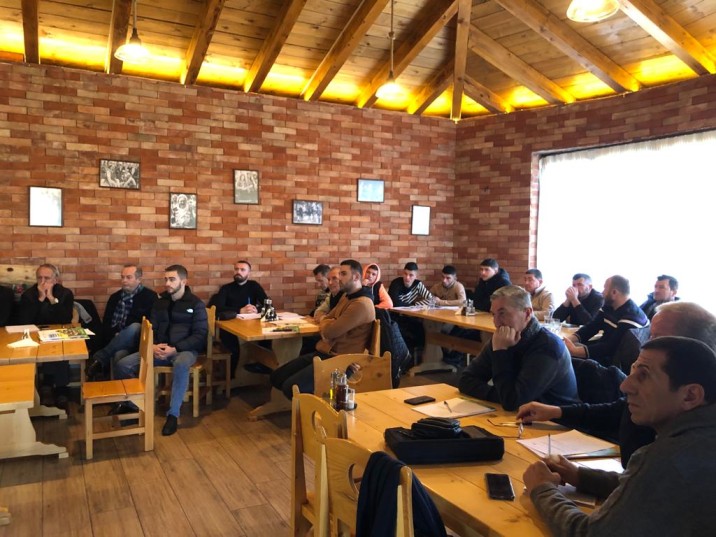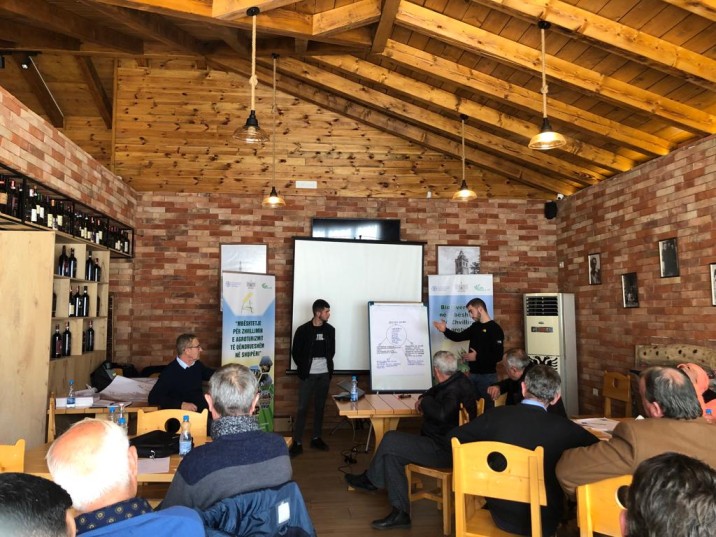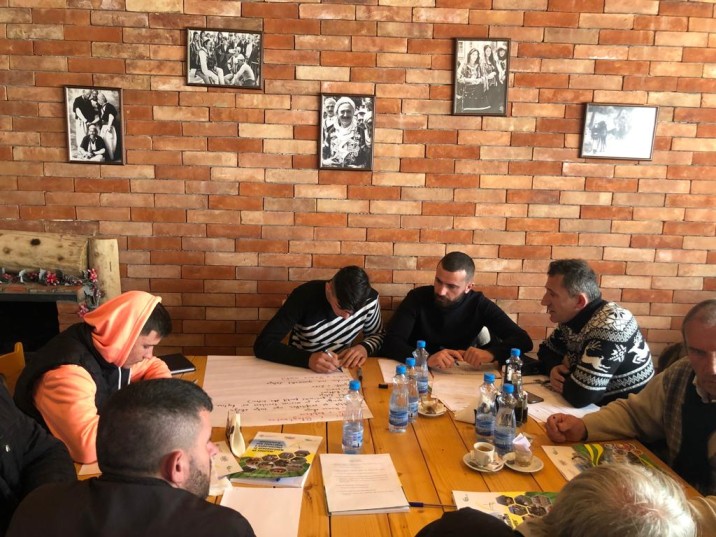Based on the Letter Agreement with FAO (Food and Agriculture Organization of the Community) for the project “Supporting the sustainable development of agritourism in Albania”, RASP (Rural Association Support Program) has organized on February 10, 2022 in Rec of Malësia e Madhe workshop on “Identification of local plant varieties and animal breeds, as a tool for agrobiodiversity conservation and promoting local/organic/GI products in support of agritourism”
The purpose of this workshop was: Presentation of the project objectives and related activities, raising awareness of stakeholders on the importance of agrobiodiversity, identification of plant and animal genetic resources in the area, identification of the ways for using plant and animal genetic resources in agroturism.
Participants in the workshop were farmers, extensionists, students, and representatives from Agro Reçi (farmers/producers association), Vis Albania (Italian NGO operating in the area) as well as the representatives from M. Madhe municipality.

The workshop took place in two separate sessions. In the first session were presented:
- Project, activities and its connection with agrobiodiversity,
- Tourism in Malësi e Madhe area and use of local assets in agrotourism;
- Local plant varieties, tradition and potential use of local genetic resources in agritourism
The second session was practical and comprehensive.
The participants were organized in three groups, in separate roundtables, respectively the group of actors engaged in Medicinal & aromatic plants; the group engaged in agricultural products and the group engaged in livestock activities.
The work in each group aimed to identify and analyze:
- Local and potential genetic resources related to agritourism;
- Linking genetic resources with tradition, ceremonies, etc.;
- Utilization of autochthonous genetic resources in agritourism;
- Needs for capacity building related to the conservation of local genetic resources and their use in agritourism;
- Institutional support needs.
The findings and products of genetic resources and local varieties of the area discussed and identified in the roundtables were presented by a representative of each group.

The results of this workshop will serve for RASP experts to continue the work by providing more detailed information and assessing the potential of agrobiodiversity to better support the development of agritourism in this region.




